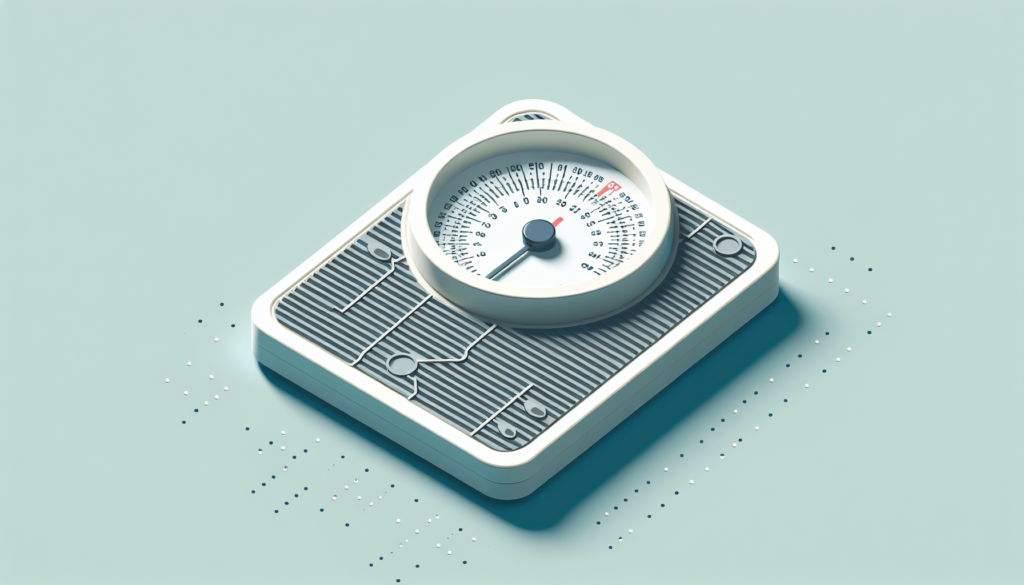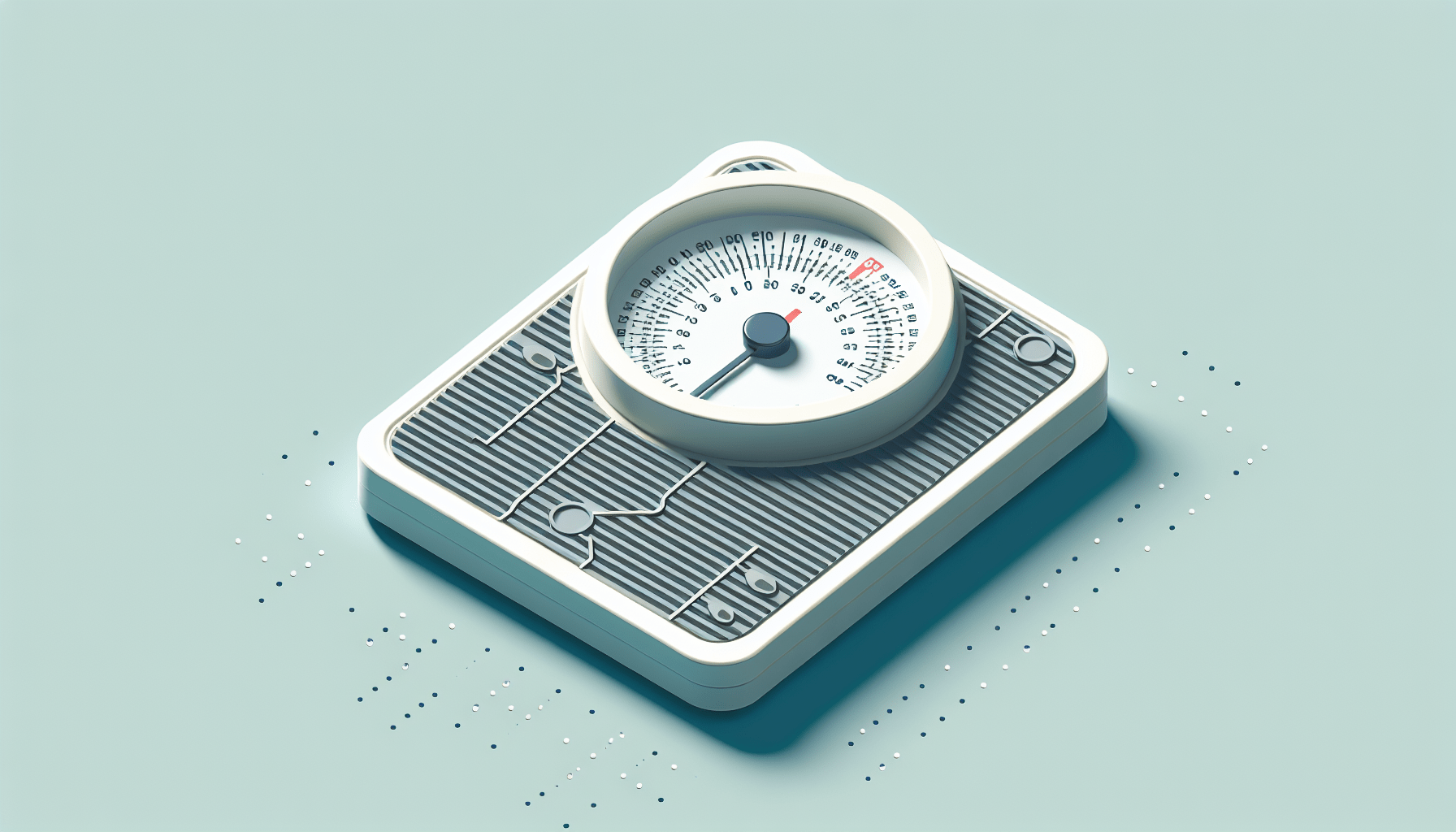Are you tired of feeling overweight and sluggish? Curious about whether it’s possible to shed those extra pounds in just three months? In this article, we will explore the question of whether it’s achievable to lose 50lbs in such a short period of time. We’ll examine different factors that contribute to weight loss, discuss realistic expectations, and provide helpful tips and strategies to help you reach your weight loss goals. So, let’s embark on this journey together and discover if losing 50lbs in three months is within your reach!
Implementing a Healthy Diet
Planning your meals
When it comes to implementing a healthy diet, planning your meals is key. By taking the time to plan out your meals for the week, you can ensure that you are making nutritious choices and avoiding unhealthy options. Start by creating a grocery list and shopping for all the ingredients you will need. Then, set aside some time to prepare your meals in advance, such as chopping vegetables or pre-cooking some proteins. This will make it easier to stick to your healthy eating plan throughout the week.
Choosing nutritious foods
When choosing nutritious foods, it’s important to focus on consuming a variety of nutrient-dense options. Opt for whole, unprocessed foods that are rich in vitamins, minerals, and antioxidants. Include plenty of fruits and vegetables, whole grains, lean proteins, and healthy fats in your diet. These choices will provide your body with the essential nutrients it needs to function properly and support your weight loss goals.
Portion control
Maintaining portion control is another crucial aspect of implementing a healthy diet. Even nutritious foods can lead to weight gain if consumed in excessive amounts. To practice portion control, try using smaller plates and bowls, measuring your food portions, and paying attention to your body’s hunger and fullness cues. By being mindful of portion sizes, you can enjoy a balanced diet without overindulging.
Meal prepping
Meal prepping is a time-saving and convenient strategy for implementing a healthy diet. Set aside a dedicated day or time during the week to prepare your meals in advance. This can include cooking and portioning out your meals for the next few days or prepping ingredients to make meal assembly easier. By having healthy meals readily available, you can avoid making impulsive unhealthy food choices when you’re short on time or energy.
Avoiding processed foods
One of the most important steps in implementing a healthy diet is to avoid processed foods as much as possible. Processed foods often contain high amounts of added sugars, unhealthy fats, and sodium. Instead, opt for real, whole foods that are as close to their natural state as possible. This would include fresh fruits and vegetables, lean proteins, whole grains, and healthy fats. By minimizing your consumption of processed foods, you can support your weight loss efforts and improve your overall health.
Exercise and Physical Activity
Creating a workout routine
To complement your healthy diet, it’s essential to create a workout routine that suits your goals and lifestyle. Choose activities that you enjoy and that align with your fitness level. Whether it’s cycling, swimming, jogging, or attending fitness classes, find activities that keep you motivated and engaged. Aim for a combination of cardiovascular exercises and strength training to maximize the benefits of your workouts.
Cardiovascular exercises
Cardiovascular exercises are essential for burning calories, improving cardiovascular health, and increasing overall fitness levels. Engage in activities that get your heart rate up and make you sweat. This can include activities such as brisk walking, running, cycling, dancing, or using cardio machines at the gym. Aim for at least 150 minutes of moderate-intensity cardiovascular exercise per week, or 75 minutes of vigorous-intensity exercise.
Strength training
In addition to cardiovascular exercises, incorporating strength training into your workout routine is important for building muscle, increasing metabolism, and improving body composition. Focus on exercises that target all major muscle groups, such as squats, lunges, push-ups, and deadlifts. Aim to strength train at least two to three times per week, allowing for recovery days in between.
Incorporating HIIT workouts
High-intensity interval training (HIIT) workouts are an effective way to maximize calorie burn and improve cardiovascular fitness in a shorter amount of time. HIIT involves alternating between short bursts of high-intensity exercise and periods of rest or lower intensity. This can be achieved by performing exercises such as burpees, mountain climbers, or sprints. Incorporate HIIT workouts into your routine to challenge your body and add variety to your workouts.
Tracking progress and adjusting
As you implement your exercise routine, it’s important to track your progress and make adjustments as needed. Keep a record of your workouts, including the exercises performed, duration, and any measurable results. This can help you monitor your progress and identify areas for improvement. If you find that your current routine is no longer challenging or yielding the desired results, don’t be afraid to switch things up or seek guidance from a fitness professional.
Lifestyle Changes
Getting enough sleep
Getting enough sleep is often overlooked but plays a vital role in weight loss and overall health. Aim for 7-9 hours of quality sleep each night to support your body’s recovery and proper functioning. Lack of sleep can disrupt hormones that regulate hunger and satiety, leading to increased cravings and overeating. Establish a consistent sleep schedule and create a relaxing bedtime routine to improve the quality and duration of your sleep.
Managing stress levels
Stress can have a significant impact on weight and overall health. Chronic stress can lead to increased cortisol levels, which may contribute to weight gain and difficulty losing weight. Implement stress management techniques into your daily routine, such as meditation, deep breathing exercises, yoga, or engaging in hobbies that you enjoy. Prioritize self-care and set aside time for activities that help you relax and unwind.
Drinking plenty of water
Staying hydrated is essential for overall health and can support weight loss efforts. Drinking plenty of water throughout the day can help curb hunger, improve digestion, and boost metabolism. Aim for at least 8 cups (64 ounces) of water per day, or more if you are active or in a hot climate. Carry a reusable water bottle with you to ensure you have access to water wherever you go.
Limiting alcohol consumption
While occasional moderate alcohol consumption may be acceptable, excessive alcohol intake can hinder weight loss efforts. Alcohol is high in empty calories and can lead to poor food choices, overeating, and disrupted sleep. Limit your alcohol consumption and opt for healthier alternatives such as infused water, herbal tea, or mocktails. When drinking, practice moderation and choose lower-calorie options.
Avoiding sugary beverages
Sugary beverages, such as soda, juice, and energy drinks, can contribute to weight gain and have negative effects on overall health. These beverages are often high in calories and sugar while lacking essential nutrients. Opt for water, unsweetened tea, or herbal infusions as your main source of hydration. If you crave flavor, try adding slices of fruit or herbs to enhance the taste naturally.

Seeking Professional Guidance
Consulting a healthcare professional
Before embarking on any weight loss journey, it’s essential to consult with a healthcare professional, especially if you have any underlying health conditions or concerns. They can offer guidance, evaluate your overall health, and inform you of any specific considerations or modifications that may be necessary for your individual circumstances.
Working with a registered dietitian
A registered dietitian can provide expert guidance on creating a personalized, well-balanced meal plan that meets your nutritional needs and supports your weight loss goals. They can help you navigate the often complex world of nutrition, address any dietary restrictions or concerns, and offer ongoing support and accountability.
Hiring a personal trainer
If you’re new to exercise or need guidance in creating an effective workout routine, hiring a personal trainer can be beneficial. A personal trainer can assess your fitness level, develop a customized exercise plan, provide instruction on proper exercise form, and offer motivation and support along the way.
Joining a weight loss support group
Joining a weight loss support group can provide a valuable source of motivation, encouragement, and accountability. Sharing your journey with others who have similar goals and challenges can offer a sense of camaraderie and a safe space to discuss struggles and successes.
Tracking progress with a medical professional
Regularly monitoring your progress with a medical professional can help ensure that your weight loss journey is safe and effective. They can assess changes in your overall health, provide guidance on any necessary adjustments, and monitor for any potential risks or concerns.
Monitoring Health and Progress
Regularly monitoring weight and measurements
Regularly monitoring your weight and measurements can help you track your progress and make necessary adjustments to your weight loss plan. However, it’s important to remember that weight is just one indicator of progress. Take into consideration other factors such as how your clothes fit and how you feel overall.
Tracking calorie intake
Tracking your calorie intake can be helpful for identifying patterns, managing portion sizes, and staying within your desired calorie range. Use a food journal or a calorie tracking app to log your meals and snacks. Remember, it’s not just about the quantity of calories but also the quality of the foods you consume.
Keeping a food journal
Keeping a food journal can provide valuable insights into your eating habits and behaviors. It can help you identify emotional triggers, patterns of overeating, or areas where you can make healthier choices. Be honest with yourself and record everything you eat and drink, including portion sizes.
Using fitness apps or devices
Fitness apps or devices can help you track your exercise and physical activity levels, monitor your heart rate or caloric burn, and set goals for yourself. These tools can provide motivation and allow you to see your progress over time, making your fitness journey more engaging and interactive.
Noting changes in energy levels and overall well-being
Pay attention to how your body feels and how your energy levels change as you implement a healthy diet and exercise routine. You should start to notice positive changes in your overall well-being, such as increased energy, improved sleep, and enhanced mood. These non-scale victories can be just as significant as the number on the scale.
Setting Realistic Expectations
Understanding healthy weight loss
It’s important to have realistic expectations when it comes to weight loss. Healthy weight loss typically averages to 1-2 pounds per week. Rapid weight loss is often unsustainable and can be harmful to your health. Focus on gradual and sustainable progress, as this is more likely to result in long-term success.
Accounting for individual differences
Individual differences, such as genetics, metabolism, and lifestyle, play a significant role in weight loss. What works for one person may not work for another. Remember to be patient and find what suits you best. Experiment with different approaches and strategies until you find the ones that work for your unique circumstances.
Recognizing non-scale victories
Weight loss is not solely about the number on the scale. Celebrate non-scale victories such as increased strength, improved flexibility, reduced body measurements, and better overall health. These achievements are just as important and can provide motivation and encouragement to continue on your journey.
Focusing on long-term sustainable habits
Instead of focusing solely on short-term goals, shift your focus to developing long-term sustainable habits. Incorporate healthy eating and regular physical activity into your lifestyle, rather than viewing it as a temporary fix. By making gradual, lasting changes, you can maintain your weight loss and enjoy a healthier life in the long run.
Maintaining a positive mindset
Maintaining a positive mindset throughout your weight loss journey is crucial. Instead of viewing setbacks or plateaus as failures, see them as learning opportunities and chances to regroup and refocus. Surround yourself with positive support systems and practice self-compassion and self-acceptance along the way.
Overcoming Challenges
Dealing with plateaus
Plateaus are a common part of any weight loss journey. Instead of getting discouraged, use plateaus as an opportunity to reassess your habits and make adjustments. Consider changing up your exercise routine, trying new workout classes, or consulting with a professional for guidance. Plateaus are temporary, and by staying consistent, you will eventually break through.
Avoiding temptation and staying motivated
Avoiding temptation and staying motivated can be challenging, especially when faced with unhealthy food options or obstacles to exercise. Prepare yourself with strategies such as meal prepping, having healthy snacks on hand, and finding enjoyable ways to stay active. Surround yourself with positive influences and motivational tools to keep you on track.
Managing cravings
Cravings can be a common hurdle in weight loss. To manage cravings, practice mindfulness and identify whether you are truly hungry or just experiencing a craving. Distract yourself with a healthy alternative or engage in a non-food-related activity. Over time, cravings often decrease as your body becomes accustomed to healthier choices.
Addressing emotional eating
Emotional eating can sabotage weight loss efforts and lead to a cycle of overeating. Instead of turning to food for emotional comfort, develop alternative coping mechanisms, such as journaling, deep breathing exercises, or talking to a trusted friend or professional. Recognize triggers and address underlying emotions that may be driving your eating habits.
Finding alternative coping mechanisms and support
Finding alternative coping mechanisms and support is crucial when facing challenges. Engage in activities that bring you joy and provide stress relief, such as reading, meditating, or engaging in hobbies. Surround yourself with a supportive network of friends, family, or a weight loss support group who can offer encouragement and accountability.
Potential Risks and Considerations
Consulting a healthcare professional before starting any weight loss program
Before starting any weight loss program, it is advisable to consult with a healthcare professional, especially if you have underlying health conditions or concerns. They can provide personalized guidance based on your medical history, medications, and individual needs.
Avoiding extreme diets or rapid weight loss methods
Extreme diets or rapid weight loss methods can be harmful to your health and are often unsustainable. Avoid fad diets that promise quick fixes and instead focus on making long-term, healthy lifestyle changes. Gradual, sustainable weight loss is more beneficial for your overall health and well-being.
Monitoring any negative changes in health
Throughout your weight loss journey, it’s important to monitor any negative changes in your health. This can include changes in energy levels, mood, digestion, or any other symptoms that may arise. If you experience any concerning or persistent issues, consult with a healthcare professional.
Addressing potential nutrient deficiencies
When implementing a calorie-restricted diet, there is a risk of potential nutrient deficiencies. To minimize this risk, focus on consuming a variety of nutrient-dense foods and consider consulting with a registered dietitian who can provide guidance on meeting your nutritional needs while losing weight.
Prioritizing overall well-being over solely focusing on weight loss
While weight loss is a common goal, it’s important to prioritize overall well-being and health. Remember that the number on the scale does not define your worth, and that healthy habits and self-care are equally important. Focus on nourishing your body, improving your fitness level, and cultivating a positive relationship with yourself.
Conclusion
Implementing a healthy diet and exercise routine is a journey that requires commitment, perseverance, and a positive attitude. By planning your meals, choosing nutritious foods, practicing portion control, and avoiding processed foods, you can lay the foundation for a healthier lifestyle. Exercising regularly, including both cardiovascular and strength training exercises, allows you to maximize your weight loss potential and improve overall fitness. Making lifestyle changes such as getting enough sleep, managing stress levels, staying hydrated, limiting alcohol and sugary beverages, forms the basis for long-term success. Seek professional guidance when needed and regularly monitor your health and progress to stay on track. By setting realistic expectations, overcoming challenges, and prioritizing overall well-being, you can achieve sustainable weight loss and enjoy a healthier, happier life.

